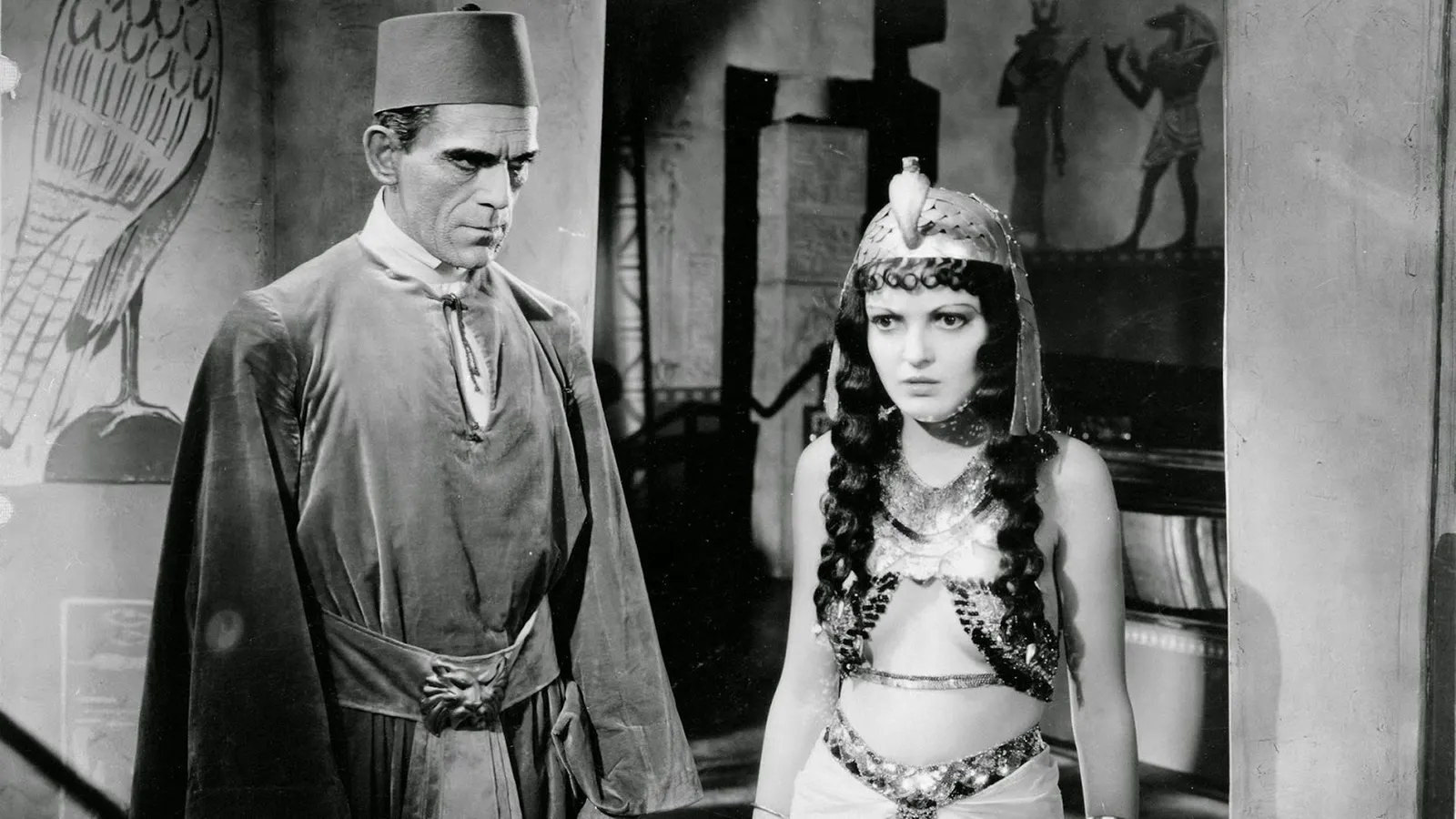BEHIND THE CURTAIN (4)
By:
June 18, 2023

“Behind the Curtain” was originally published in the September 21, 1918 issue of All-Story Weekly. HiLoBooks is pleased to serialize it here for HILOBROW’s readers.
ALL INSTALLMENTS: 1 | 2 | 3 | 4.
He could not even cross the room to stop my laughter, but at the first step stumbled, fell, and in a very little while lay at the foot of the gilded case.
After all, he was not so strong as I. Beatrice had seen. Her still, cold eyes saw all. How he lay there, his fine, lithe body contorted, worthless for any use till its substance should have been cast again in the melting-pot of dissolution, while I who had drunk of the same draft, suffered the same pangs, yet stood and found breath for mockery.
So I poured myself another glass of that good Cordovan wine, and I raised it to both of them and drained it, laughing.
“Quentin,” I cried, “you asked what door, though your thought was that you had passed that way before, and feared that I guessed your knowledge. But there are doors and doors, dear, charming friend, and one that is heavier than any other. Close it if you can. Close it now in my face, who otherwise will follow even whither you have gone — the heavy, heavy door of the Osiris, Keeper of the House of Death!”
Thus I dreamed of doing and speaking. It was so vivid, the dream, that awakening in the darkness of my room I could scarcely believe that it had been other than reality. True, I lived, while in my dream I had shared the avenging poison. Yet my veins were still hot with the keen passion of triumph, and my eyes filled with the vision of Beatrice, dead — dead in Ta-Nezem’s casket.
Unreasonably frightened. I sprang from bed, flung on a dressing-gown, and hurried out. Down the hallway I sped, swiftly and silently, at the end of it unlocked heavy doors with a tremulous hand, switched on lights, lights and more lights, till the great room of my collection was ablaze with them, and as my treasures sprang into view I sighed, like a man reaching home from a perilous journey.
The dream was a lie.
There, fronting me, stood the heavy empty sarcophagus; there on the trestles before it lay the gilded case, a thing of beautiful, gleaming lines, like the smiling image of a golden woman.
I stole across the room and softly, very softly, lifted the upper half of the beautiful lid, peering within. The dream indeed was a lie.
Happy as a comforted child I went to my room again. Across the hall the door of my wife’s boudoir stood partly open.
In the room beyond a faint light was burning, and I could see the rose-colored curtain sway slightly to a draft from some open window.
Yesterday she had come to me and asked for her freedom. I had refused, knowing to whom she would turn, and hating him for his youth, and his crudeness and his secret scorn of me.
But had I done well? They were children, those two, and despite my dream I was certain that their foolish, youthful ideals had kept them from actual sin against my honor. But what if, time passing, they might change? Or, Quentin gone, my lovely Beatrice might favor another, young as he and not so scrupulous?
Every one, they say, has a streak of incipient madness. I recalled the frenzied act to which my dream jealousy had driven me. Perhaps it was a warning, the dream. What if my father’s jealous blood should some day betray me, drive me to the insane destruction of her I held most dear and sacred.
I shuddered, then smiled at the swaying curtain. Beatrice was too beautiful for safety. She should have her freedom.
Let her mate with Ralph Quentin or whom she would, Ta-Nezem must rest secure in her gilded house of death. My brown, perfect, shriveled Princess of the Nile! Destroyed — rent to brown, aromatic shreds—burned—destroyed — and her beautiful coffin-case desecrated as I had seen it in my vision.
Again I shuddered, smiled and shook my head sadly at the swaying, rosy curtain.
“You are too lovely, Beatrice,” I said, “and my father was a Spaniard. You shall have your freedom!”
I entered my room and lay down to sleep again, at peace and content.
The dream, thank God, was a lie.
RADIUM AGE PROTO-SF: “Radium Age” is Josh Glenn’s name for the nascent sf genre’s c. 1900–1935 era, a period which saw the discovery of radioactivity, i.e., the revelation that matter itself is constantly in movement — a fitting metaphor for the first decades of the 20th century, during which old scientific, religious, political, and social certainties were shattered. More info here.
SERIALIZED BY HILOBOOKS: James Parker’s Cocky the Fox | Annalee Newitz’s “The Great Oxygen Race” | Matthew Battles’s “Imago” | & many more original and reissued novels and stories.
